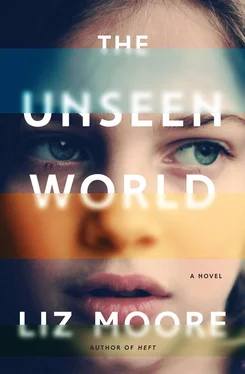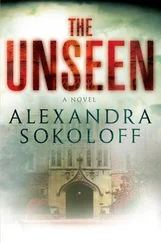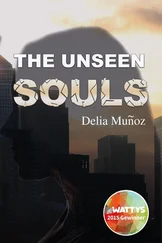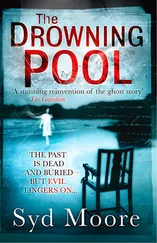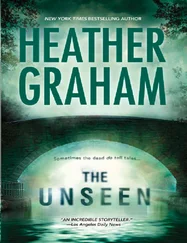She had not been to the house since Liston’s wake. Approaching it from the outside, Ada had seen immediately what Joanie had been complaining about, since Kathryn’s reign had begun: she had gentrified the house completely. Gone was the bright pink trim — the last color Liston had chosen — and gone the lone flamingo in the front garden, which Liston had decorated seasonally with a pilgrim’s hat or a Santa hat or a cape in the pattern of the American flag.
The interior was sterile and calm. A sort of beach theme pervaded it, strange for a Victorian in Dorchester: white walls, wicker furniture, starfish in a glass hurricane vase on an end table. Pictures in driftwood frames on the mantel — two of them, still displayed, were of Gregory and Kathryn at their wedding.
Ada wandered toward it, curious, before catching herself. Gregory looked down.
Ten square feet of sealed boxes occupied the living room: Gregory’s things, packed and waiting. She gestured toward that instead.
“Has it been hard packing up?” she asked him.
He considered. “Sort of,” he said. “But nice in other ways. Nice to go through Mom’s things. We still had so many of them in the house.”
Ada’s stomach rumbled then, loudly, and she folded her arms about her middle, protecting it. It had been hours and hours since she had eaten anything. She was always coming to this house, she thought, needing something: as a child, she had come needing comfort, needing protection, needing food. Needing Liston. Now Liston was gone, and David was gone, and she was thirty-seven years old and still forgetting to feed herself.
“Do you want dinner?” asked Gregory. He looked doubtful. “I’m not sure what we have in the house. What I have in the house,” he said.
So they went and looked, in a kitchen that had been painted as white as the rest of the house. In the cupboards were stale-looking things: ancient spices, boxes of dried beans and dried pasta, tomato paste, chicken broth. Gregory opened the refrigerator. There was butter inside, and a bottle of white wine that someone, maybe Kathryn, had opened. Gregory took the stopper out and sniffed it. He sniffed it again. Then he turned to Ada and held it out to her questioningly.
“Okay,” said Ada. He poured them each a glass.
For dinner, they made pasta with butter and salt.
“What about tomato paste?” asked Gregory. “Do we think tomato paste would help or harm?”
“Liston probably would have thrown it in,” said Ada, laughing, and Gregory agreed. “In Mom’s honor, then,” he said, and he placed a dollop of tomato paste in the middle of the bowl, and gave it all a stir.
It was surprisingly good, rich with butter and salt, steaming from the pot. “Good for a cold day, at least,” said Gregory.
After dinner, Ada thanked him. She shouldered her bag. Gregory said he would take her to her hotel.
Ada walked once more around the first floor of the house. She felt a deep, abiding sorrow at seeing it go: it was difficult to imagine Shawmut Way without the Listons on it.
“Can I look on the second floor?” she asked, impulsively.
“Sure,” said Gregory. And he followed her up the stairs. She was more aware of him, his presence, than she had ever been before; she heard each of his footsteps behind her and felt a sudden gratefulness for them.
In the second-floor hallway, she let her hand hover for a moment over a doorknob.
“You don’t mind?” she said. He shook his head. So she opened the door to every room. In some ways, she thought, it had been her house, too. There was Liston’s room; there, Matty and Gregory’s room; there, William’s; there, Ada’s. She had spent over four years in that room. She thought of taking a picture, decided against it. It had been redone completely according to Kathryn’s taste. It was better as a memory, she thought.
“Want to see something else?” said Gregory. “Come on, I’ll show you.”
He opened the door in the hallway that led to the attic, flicked a switch at the bottom of the stairs that sent bright light down toward them from the ceiling under the roof. Ada followed him up the stairs and looked over the half wall at the top.
The attic was a time machine: not a thing had changed.
The posters on the walls, the orange shag carpeting, the tattered couches, the boxes in the corner: all of it was there.
“It was the deal I made with Kathryn,” said Gregory, ruefully. “I told her she could do whatever she wanted with the rest of the house.”
There, on the desk, was the same computer that had been there since their childhood: the 128K Macintosh. Ada walked toward it.
“Does it still work?” she asked.
“I haven’t tried it in years,” said Gregory. “But let’s see.” And he waved her toward it with a nod of his head.
She put a hand on it. The top of it was a beige square of hard plastic with an indentation, like a fontanelle, along the back. The smallness of the screen surprised her: she had remembered it being larger. There, in the front, was a built-in disk drive; and attached by cords were an external disk drive, a stout keyboard with fat little keys and a number pad, and a boxy mouse. The wires themselves were thick and gray. One was corkscrewed, like an old-fashioned telephone cord.
She had forgotten how shaky these computers felt, how much they rattled, like brains in skulls. The keyboard, when she touched it, sent a shock of nostalgia through her. She was thrilled by the familiarity of it, the feel of it when she touched any letter. Ada Sibelius , she typed, and the keyboard clacked like teeth. It sounded as if it were loaded with springs. She missed buttons like these, fat hearty ones, buttons it took real intention to depress.
She turned on the power switch and held her breath for a moment. Nothing happened. And then a tone sounded, and it whirred satisfyingly to life. A little floppy disk icon with a question mark appeared in the center of the gray screen. Its mind was missing from its body, as David used to say.
“Here,” Gregory said, reaching into the case next to the computer, pulling out for her the floppy that contained the operating system.
She fed the disk into its mouth as if it were a child, and reflexively it swallowed, and she paused to register a sound she had not heard in decades: the loud shuddering scratch of a thinking machine. Machines thought so quietly now.
The question mark turned into a smiling computer. Slowly it woke from its long dreamless sleep. And in its waking Ada, too, was roused by memories: of Liston, of David, of Hayato and Charles-Robert and Frank Halbert. Only the latter three were still alive; the machine had outlived the rest.
The funny thing about early home computers, she thought, was that they really did nothing. The main disk contained a calculator, a notepad, some other silly small applications that took up little memory. The only icon on the desktop she didn’t recognize belonged to whatever disk was in the external hard drive, which someone had titled Dontlook12 .
Gregory began to laugh. He put a hand over his eyes. “Oh, God,” he said.
“What?” asked Ada.
He waved a finger toward the icon. “Just reliving my most humiliating childhood memory,” he said. “Of many,” he added.
Ada raised her eyebrows, shook her head.
“You don’t remember?” said Gregory. “Really?”
She looked back at the desktop, and then finally a vague memory came back to her: something about a long string of encrypted text, most likely created by Gregory.
“Oh,” said Ada. “The encryption you made when we were kids?”
Gregory was still shaking his head, laughing. “I don’t know how you ever looked at me again,” he said, “after you read that. I wanted to die. You were nice not to tease me about it.”
Читать дальше
